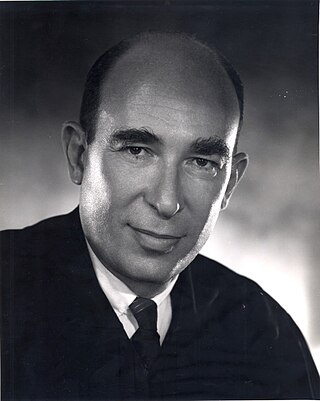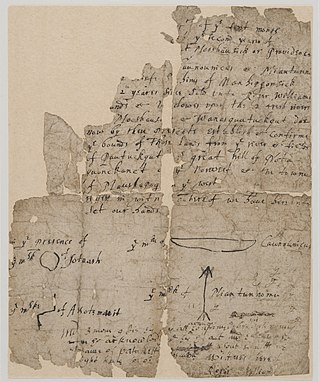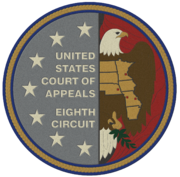Student rights are those rights, such as civil, constitutional, contractual and consumer rights, which regulate student rights and freedoms and allow students to make use of their educational investment. These include such things as the right to free speech and association, to due process, equality, autonomy, safety and privacy, and accountability in contracts and advertising, which regulate the treatment of students by teachers and administrators. There is very little scholarship about student rights throughout the world. In general most countries have some kind of student rights enshrined in their laws and proceduralized by their court precedents. Some countries, like Romania, in the European Union, have comprehensive student bills of rights, which outline both rights and how they are to be proceduralized. Most countries, however, like the United States and Canada, do not have a cohesive bill of rights and students must use the courts to determine how rights precedents in one area apply in their own jurisdictions.
The Nonintercourse Act is the collective name given to six statutes passed by the United States Congress in 1790, 1793, 1796, 1799, 1802, and 1834 to set boundaries of American Indian reservations. The various acts were also intended to regulate commerce between White Americans and citizens of Indigenous nations. The most notable provisions of the act regulate the inalienability of aboriginal title in the United States, a continuing source of litigation for almost 200 years. The prohibition on purchases of Indian lands without the approval of the federal government has its origins in the Royal Proclamation of 1763 and the Confederation Congress Proclamation of 1783.
Harper & Row v. Nation Enterprises, 471 U.S. 539 (1985), was a United States Supreme Court decision in which public interest in learning about a historical figure's impressions of a historic event was held not to be sufficient to show fair use of material otherwise protected by copyright. Defendant, The Nation, had summarized and quoted substantially from A Time to Heal, President Gerald Ford's forthcoming memoir of his decision to pardon former president Richard Nixon. When Harper & Row, who held the rights to A Time to Heal, brought suit, The Nation asserted that its use of the book was protected under the doctrine of fair use, because of the great public interest in a historical figure's account of a historic incident. The Court rejected this argument holding that the right of first publication was important enough to find in favor of Harper.

Stephen Nathaniel Limbaugh Sr. is a former United States District Judge who held concurrent appointments to the United States District Court for the Eastern District of Missouri and the United States District Court for the Western District of Missouri from 1983 until his retirement in 2008. He was appointed by president Ronald Reagan in the early 1980s after a distinguished career as a trial lawyer in Missouri. Like his father Rush Limbaugh Sr. before him, Limbaugh served as president of the Missouri Bar from 1982 to his appointment to the bench. His son, Stephen N. Limbaugh Jr., is a federal judge for the Eastern District of Missouri.
Owen Equipment & Erection Co. v. Kroger, 437 U.S. 365 (1978), is a case that was decided by the United States Supreme Court regarding the civil procedure subject of ancillary jurisdiction.

Wilfred Feinberg was a United States circuit judge of the United States Court of Appeals for the Second Circuit and previously was a United States District Judge of the United States District Court for the Southern District of New York.
Doe v. Reed, 561 U.S. 186 (2010), is a United States Supreme Court case which holds that the disclosure of signatures on a referendum does not violate the Petition Clause of the First Amendment to the United States Constitution.

The United States was the first jurisdiction to acknowledge the common law doctrine of aboriginal title. Native American tribes and nations establish aboriginal title by actual, continuous, and exclusive use and occupancy for a "long time." Individuals may also establish aboriginal title, if their ancestors held title as individuals. Unlike other jurisdictions, the content of aboriginal title is not limited to historical or traditional land uses. Aboriginal title may not be alienated, except to the federal government or with the approval of Congress. Aboriginal title is distinct from the lands Native Americans own in fee simple and occupy under federal trust.
Citizens for Equal Protection v. Bruning, 455 F.3d 859, was a federal lawsuit filed in the United States District Court for the District of Nebraska and decided on appeal by the United States Court of Appeals for the Eighth Circuit. It challenged the federal constitutionality of Nebraska Initiative Measure 416, a 2000 ballot initiative that amended the Nebraska Constitution to prohibit the recognition of same-sex marriages, civil unions, and other same-sex relationships.
Meyer v. Grant, 486 U.S. 414 (1988), was an important decision by the United States Supreme Court on paid petition circulation. Colorado was one of several states with a process for citizens to propose initiatives for the ballot, which if passed became law. One of the requirements was to get the signatures of a significant number of registered Colorado electors. Colorado prohibited initiative sponsors from paying for the circulation of these petitions. The state argued this was necessary to "protect[...] the integrity of the initiative."
Waesche, Sheinbaum & O'Regan was a New York-based law firm focusing on international litigation and arbitration. It was co-founded in 1979 by Donald M. Waesche, Jr., Louis P. Sheinbaum and Francis M. O'Regan, partners from the Wall Street firm of Bigham, Englar, Jones & Houston.
The Vicinage Clause is a provision in the Sixth Amendment to the United States Constitution regulating the vicinity from which a jury pool may be selected. The clause says that the accused shall be entitled to an "impartial jury of the State and district wherein the crime shall have been committed, which district shall have been previously ascertained by law". The Vicinage Clause limits the vicinity of criminal jury selection to both the state and the federal judicial district where the crime has been committed. This is distinct from the venue provision of Article Three of the United States Constitution, which regulates the location of the actual trial.
Lincoln University School of Law was a professional graduate school of Lincoln University, which operated in St. Louis, Missouri from September 20, 1939, until it closed in 1955. Although Lincoln University’s campus was located in Jefferson City, Missouri, the law school was established in St. Louis because university officials believed that student enrollment would be better in an urban-centered program and that the St. Louis location offered students opportunities to meet with practicing lawyers and that faculty from the two white university law schools in the St. Louis area might be available as part-time lecturers at the new law school.
Several statutes, mostly codified in Title 18 of the United States Code, provide for federal prosecution of public corruption in the United States. Federal prosecutions of public corruption under the Hobbs Act, the mail and wire fraud statutes, including the honest services fraud provision, the Travel Act, and the Racketeer Influenced and Corrupt Organizations Act (RICO) began in the 1970s. "Although none of these statutes was enacted in order to prosecute official corruption, each has been interpreted to provide a means to do so." The federal official bribery and gratuity statute, 18 U.S.C. § 201, the Foreign Corrupt Practices Act (FCPA) 15 U.S.C. § 78dd, and the federal program bribery statute, 18 U.S.C. § 666 directly address public corruption.
The Assimilative Crimes Act, 18 U.S.C. § 13, makes state law applicable to conduct occurring on lands reserved or acquired by the Federal government as provided in 18 U.S.C. § 7(3), when the act or omission is not made punishable by an enactment of Congress.
Widmar v. Vincent, 454 U.S. 263 (1981), held that when the U.S. government provides an "open forum," it may not discriminate against speech that takes place within that forum on the basis of the viewpoint it expresses—in this case, against religious speech engaged in by an evangelical Christian organization.



